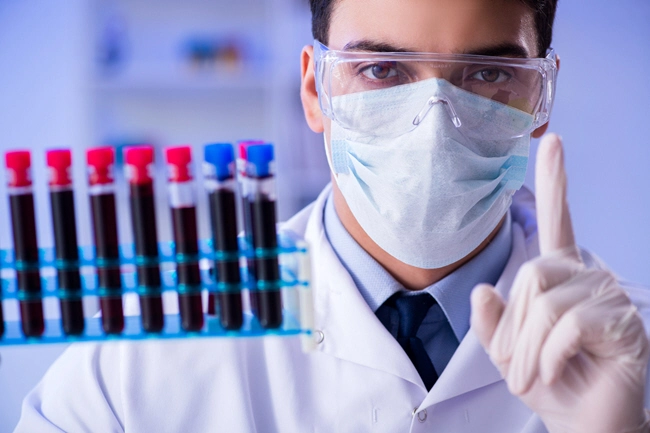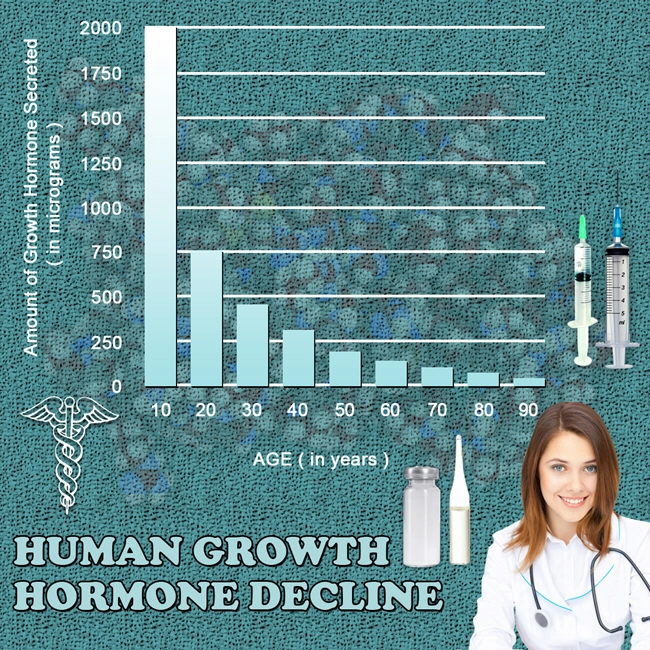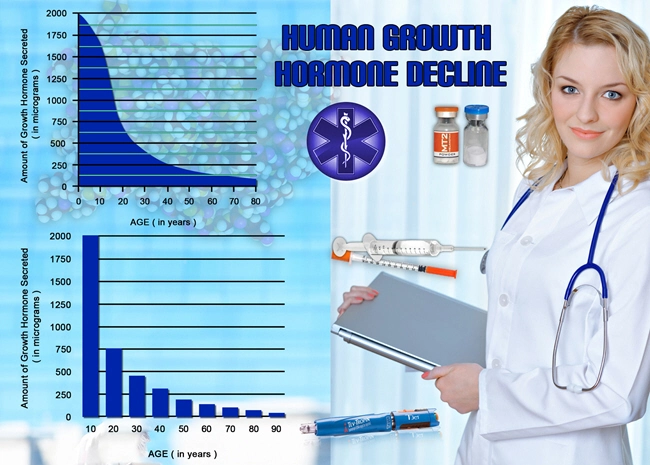
Introduction to Late-Onset Hypogonadism
Late-Onset Hypogonadism (LOH), also known as age-related low testosterone, is a clinical and biochemical syndrome associated with advancing age in men. It is characterized by a deficiency in testosterone levels, leading to a variety of symptoms that can significantly impact the quality of life. For American males, understanding LOH is crucial, as it affects a substantial portion of the aging male population and is often underdiagnosed and undertreated.
Symptoms and Impact on Quality of Life
The symptoms of LOH can be subtle and may be mistaken for normal aging. Common signs include decreased libido, erectile dysfunction, fatigue, depression, and loss of muscle mass. These symptoms can lead to a decline in physical and mental health, affecting personal relationships, work productivity, and overall well-being. American men need to be aware of these symptoms, as early recognition can lead to timely intervention and improved outcomes.
Prevalence and Risk Factors
Studies suggest that LOH affects up to 30% of men over the age of 50 in the United States. Risk factors include obesity, chronic diseases such as diabetes and hypertension, and certain lifestyle choices like smoking and excessive alcohol consumption. American males, especially those with these risk factors, should be vigilant about monitoring their health and discussing any concerning symptoms with their healthcare providers.
The Importance of Screening and Diagnosis
Screening for LOH involves a thorough medical history, physical examination, and blood tests to measure testosterone levels. It is essential for American men to have open discussions with their doctors about their symptoms and to consider screening if they suspect they may be affected. Early diagnosis can prevent the progression of symptoms and improve the effectiveness of treatment.
Treatment Options and Management
Treatment for LOH typically involves testosterone replacement therapy (TRT), which can be administered through various methods, including injections, gels, and patches. TRT can significantly improve symptoms and quality of life. However, it is not suitable for everyone, and potential risks and benefits must be carefully weighed. Lifestyle modifications, such as regular exercise, a healthy diet, and weight management, are also crucial components of managing LOH.
Educational Initiatives and Public Awareness
Increasing public awareness and education about LOH is vital for American males. Healthcare providers should be proactive in discussing the condition with their patients, especially those in higher-risk groups. Educational campaigns can help dispel myths and misconceptions about LOH and encourage men to seek help if they experience symptoms. Community health programs and online resources can play a significant role in reaching a broader audience and providing accurate information.
The Role of Support Systems
Support systems, including family, friends, and support groups, can be invaluable for men dealing with LOH. Sharing experiences and coping strategies can alleviate feelings of isolation and provide emotional support. American men should be encouraged to reach out and engage with these networks, as they can enhance the effectiveness of treatment and improve overall well-being.
Conclusion: Empowering American Males Through Knowledge
Late-Onset Hypogonadism is a significant health concern for American males, yet it remains underrecognized and undertreated. By increasing education and awareness, we can empower men to take control of their health, seek timely medical advice, and improve their quality of life. As a society, we must work together to ensure that American males have the knowledge and resources they need to address LOH effectively.
Contact Us Today For A Free Consultation
Dear Patient,
Once you have completing the above contact form, for security purposes and confirmation, please confirm your information by calling us.
Please call now: 1-800-380-5339.
Welcoming You To Our Clinic, Professor Tom Henderson.

- Exploring Alternative Therapies for Late-Onset Hypogonadism in American Males [Last Updated On: February 25th, 2025] [Originally Added On: February 25th, 2025]
- Late-Onset Hypogonadism: Symptoms, Diagnosis, and Comprehensive Management Strategies [Last Updated On: March 18th, 2025] [Originally Added On: March 18th, 2025]
- Economic Impact of Late-Onset Hypogonadism in Aging U.S. Men: Challenges and Strategies [Last Updated On: March 18th, 2025] [Originally Added On: March 18th, 2025]
- Late-Onset Hypogonadism: Impact on Muscle Mass and Treatment Options in American Men [Last Updated On: March 18th, 2025] [Originally Added On: March 18th, 2025]
- Genetic Factors in Late-Onset Hypogonadism: Insights for American Males [Last Updated On: March 18th, 2025] [Originally Added On: March 18th, 2025]
- Innovative Treatments and Future Directions for Late-Onset Hypogonadism in American Males [Last Updated On: March 18th, 2025] [Originally Added On: March 18th, 2025]
- Managing Late-Onset Hypogonadism in Men Over 40: Diagnosis, Treatment, and Lifestyle [Last Updated On: March 20th, 2025] [Originally Added On: March 20th, 2025]
- Late-Onset Hypogonadism: Impact on Fertility and Management in American Men [Last Updated On: March 20th, 2025] [Originally Added On: March 20th, 2025]
- Managing Late-Onset Hypogonadism: Symptoms, Screening, and Lifestyle Strategies for American Men [Last Updated On: March 20th, 2025] [Originally Added On: March 20th, 2025]
- Late-Onset Hypogonadism: Impacts on Mood, Energy, and Treatment Approaches [Last Updated On: March 21st, 2025] [Originally Added On: March 21st, 2025]
- Late-Onset Hypogonadism in American Men: Diagnosis, Treatment, and Vitality Maintenance [Last Updated On: March 21st, 2025] [Originally Added On: March 21st, 2025]
- Late-Onset Hypogonadism: Impact on Sleep and Health in American Men [Last Updated On: March 22nd, 2025] [Originally Added On: March 22nd, 2025]
- Managing Late-Onset Hypogonadism: Nutrition, Diet, and Lifestyle Strategies for American Men [Last Updated On: March 22nd, 2025] [Originally Added On: March 22nd, 2025]
- Late-Onset Hypogonadism in American Men: Symptoms, Treatment, and Lifestyle Management [Last Updated On: March 22nd, 2025] [Originally Added On: March 22nd, 2025]
- Late-Onset Hypogonadism in American Males: Prevalence, Impact, and Management Strategies [Last Updated On: March 22nd, 2025] [Originally Added On: March 22nd, 2025]
- Holistic Management of Late-Onset Hypogonadism in American Males: A Comprehensive Approach [Last Updated On: March 23rd, 2025] [Originally Added On: March 23rd, 2025]
- Early Intervention Benefits for Late-Onset Hypogonadism in American Men [Last Updated On: March 23rd, 2025] [Originally Added On: March 23rd, 2025]
- Long-term Effects of Late-Onset Hypogonadism on American Men's Health and Well-being [Last Updated On: March 23rd, 2025] [Originally Added On: March 23rd, 2025]
- Managing Late-Onset Hypogonadism: Symptoms, Treatment, and Lifestyle Strategies for American Men [Last Updated On: March 23rd, 2025] [Originally Added On: March 23rd, 2025]
- Late-Onset Hypogonadism: Overcoming Stigma and Enhancing Life Quality in American Men [Last Updated On: March 23rd, 2025] [Originally Added On: March 23rd, 2025]
- Dietary Strategies to Manage Late-Onset Hypogonadism in American Men [Last Updated On: March 23rd, 2025] [Originally Added On: March 23rd, 2025]
- Diagnosing Late-Onset Hypogonadism in American Males: A Comprehensive Guide [Last Updated On: March 24th, 2025] [Originally Added On: March 24th, 2025]
- Exploring the Link Between Late-Onset Hypogonadism and Diabetes in American Males [Last Updated On: March 24th, 2025] [Originally Added On: March 24th, 2025]
- Late-Onset Hypogonadism: Cognitive Impacts and Management in American Men [Last Updated On: March 24th, 2025] [Originally Added On: March 24th, 2025]
- Exercise Boosts Testosterone: Managing Late-Onset Hypogonadism in American Males [Last Updated On: March 24th, 2025] [Originally Added On: March 24th, 2025]
- Managing Late-Onset Hypogonadism: Symptoms, Diagnosis, and Treatment in American Men [Last Updated On: March 24th, 2025] [Originally Added On: March 24th, 2025]
- Managing Late-Onset Hypogonadism: Diagnosis, Treatment, and Independence for Aging American Men [Last Updated On: March 24th, 2025] [Originally Added On: March 24th, 2025]
- Hormone Replacement Therapy: Managing Late-Onset Hypogonadism in American Men [Last Updated On: March 24th, 2025] [Originally Added On: March 24th, 2025]
- Late-Onset Hypogonadism: Understanding Treatments and Managing Side Effects [Last Updated On: March 25th, 2025] [Originally Added On: March 25th, 2025]
- Understanding Late-Onset Hypogonadism: Symptoms, Diagnosis, and Management in Aging Men [Last Updated On: March 25th, 2025] [Originally Added On: March 25th, 2025]
- Stress and Late-Onset Hypogonadism: Impact and Management in American Males [Last Updated On: March 25th, 2025] [Originally Added On: March 25th, 2025]
- Understanding Late-Onset Hypogonadism: Myths, Facts, and Effective Management Strategies [Last Updated On: March 25th, 2025] [Originally Added On: March 25th, 2025]
- Managing Late-Onset Hypogonadism: A Multidisciplinary Approach for American Men [Last Updated On: March 25th, 2025] [Originally Added On: March 25th, 2025]
- Community Support Enhances Late-Onset Hypogonadism Management in American Males [Last Updated On: March 25th, 2025] [Originally Added On: March 25th, 2025]
- Managing Late-Onset Hypogonadism: Emotional Journey and Support for American Men [Last Updated On: March 25th, 2025] [Originally Added On: March 25th, 2025]
- Late-Onset Hypogonadism: Impact on American Men's Careers and Workplace Strategies [Last Updated On: March 25th, 2025] [Originally Added On: March 25th, 2025]
- Late-Onset Hypogonadism: Impact on Men's Health and Intimate Relationships in America [Last Updated On: March 25th, 2025] [Originally Added On: March 25th, 2025]
- Late-Onset Hypogonadism in American Males: Education, Symptoms, and Management Strategies [Last Updated On: March 26th, 2025] [Originally Added On: March 26th, 2025]
- Late-Onset Hypogonadism: Health Risks and Treatment Options for American Men [Last Updated On: March 26th, 2025] [Originally Added On: March 26th, 2025]
- Late-Onset Hypogonadism: Symptoms, Diagnosis, and Management in American Men [Last Updated On: March 26th, 2025] [Originally Added On: March 26th, 2025]
- Late-Onset Hypogonadism: Health Impacts and Financial Challenges for American Men [Last Updated On: March 26th, 2025] [Originally Added On: March 26th, 2025]
- Late-Onset Hypogonadism: Symptoms, Diagnosis, and Management Strategies for American Men [Last Updated On: March 26th, 2025] [Originally Added On: March 26th, 2025]
- Legal Aspects of Late-Onset Hypogonadism: Diagnosis, Treatment, and Rights in the U.S. [Last Updated On: March 27th, 2025] [Originally Added On: March 27th, 2025]
- Managing Late-Onset Hypogonadism: Symptoms, Diagnosis, and Treatment for American Men [Last Updated On: March 27th, 2025] [Originally Added On: March 27th, 2025]
- Late-Onset Hypogonadism: Cultural Impacts on American Men's Health and Treatment [Last Updated On: March 27th, 2025] [Originally Added On: March 27th, 2025]
- Late-Onset Hypogonadism: Impact, Detection, and Management in American Males [Last Updated On: March 28th, 2025] [Originally Added On: March 28th, 2025]
- Advocating for Better Care in Late-Onset Hypogonadism: A Call to Action for American Men [Last Updated On: March 28th, 2025] [Originally Added On: March 28th, 2025]
- Managing Late-Onset Hypogonadism: Diagnosis, Treatments, and Lifestyle Strategies for American Men [Last Updated On: March 28th, 2025] [Originally Added On: March 28th, 2025]
- Technological Advances in Diagnosing Late-Onset Hypogonadism in Aging American Men [Last Updated On: March 28th, 2025] [Originally Added On: March 28th, 2025]
- Late-Onset Hypogonadism: Symptoms, Impact, and Vital Role of Family Support in American Males [Last Updated On: March 29th, 2025] [Originally Added On: March 29th, 2025]
- Late-Onset Hypogonadism: Understanding Diagnosis and Impact on American Men's Health [Last Updated On: March 29th, 2025] [Originally Added On: March 29th, 2025]
- Managing Late-Onset Hypogonadism: Diet, Exercise, Sleep, and Stress Strategies for American Men [Last Updated On: March 30th, 2025] [Originally Added On: March 30th, 2025]
- Managing Late-Onset Hypogonadism: The Vital Role of Mental Health Professionals [Last Updated On: March 30th, 2025] [Originally Added On: March 30th, 2025]
- Late-Onset Hypogonadism's Impact on American Men's Self-Esteem: A Comprehensive Overview [Last Updated On: April 3rd, 2025] [Originally Added On: April 3rd, 2025]
- Late-Onset Hypogonadism in American Males: Peer Support and Holistic Management [Last Updated On: April 4th, 2025] [Originally Added On: April 4th, 2025]
- Navigating Insurance Coverage for Late-Onset Hypogonadism Treatment in American Men [Last Updated On: April 4th, 2025] [Originally Added On: April 4th, 2025]
- Late-Onset Hypogonadism: Social Impacts and Support for American Men [Last Updated On: April 5th, 2025] [Originally Added On: April 5th, 2025]
- Research Advances in Late-Onset Hypogonadism: Diagnosis, Treatment, and Future Prospects [Last Updated On: April 5th, 2025] [Originally Added On: April 5th, 2025]
- Managing Late-Onset Hypogonadism: Stress Reduction Strategies for American Men [Last Updated On: April 6th, 2025] [Originally Added On: April 6th, 2025]
- Late-Onset Hypogonadism: Advocacy's Role in Diagnosis, Treatment, and Support for American Men [Last Updated On: April 6th, 2025] [Originally Added On: April 6th, 2025]
- Nutritionists' Role in Managing Late-Onset Hypogonadism Through Diet and Lifestyle [Last Updated On: April 10th, 2025] [Originally Added On: April 10th, 2025]
- Managing Late-Onset Hypogonadism: Strategies for American Men's Mental Health [Last Updated On: April 10th, 2025] [Originally Added On: April 10th, 2025]
- Late-Onset Hypogonadism in American Males: Symptoms, Diagnosis, and Management Strategies [Last Updated On: April 11th, 2025] [Originally Added On: April 11th, 2025]
- Managing Late-Onset Hypogonadism: Symptoms, Diagnosis, and Treatment for American Men [Last Updated On: April 12th, 2025] [Originally Added On: April 12th, 2025]
- Managing Late-Onset Hypogonadism: Symptoms, Diagnosis, and Treatment Options for Aging Men [Last Updated On: April 12th, 2025] [Originally Added On: April 12th, 2025]
- Managing Late-Onset Hypogonadism: Exercise and Lifestyle Strategies for American Men [Last Updated On: April 13th, 2025] [Originally Added On: April 13th, 2025]
- Late-Onset Hypogonadism: Emotional Impact and Support Strategies for American Men [Last Updated On: April 15th, 2025] [Originally Added On: April 15th, 2025]









